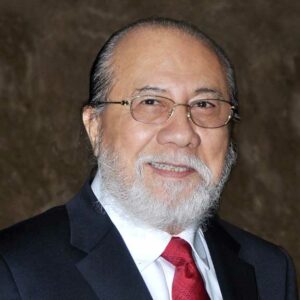Article XII, Section 1 of the 1987 Philippine Constitution on national economy and patrimony states that, “The State shall promote industrialization and full employment based on sound agricultural development and agrarian reform, through industries that make full of efficient use of human and natural resources, and which are competitive in both domestic and foreign markets. However, the State shall protect Filipino enterprises against unfair foreign competition and trade practices. /I
Ownership of land in the Philippines therefore is restricted to persons or entities considered as either Philippine nationals or Filipino citizens. Former Filipinos with dual citizenship and corporations with at least 60% Filipino ownership are permitted to own land, buildings, condominiums and townhouses subject to the limitations prescribed by Law.
Foreign nationals, however, may buy condominium units as long as not more than 40% of all the units in a project are acquired by foreigners. Alien acquisition of Philippine real estate may also be allowed under the following circumstances: (1) land has been acquired prior to the 1935 Philippine Constitution; and (2) if acquisition is the result of hereditary succession.
In Asia, it is possible for foreigners to own land in Malaysia, Singapore and Thailand subject to the limits, restrictions and prior government approval as to the extent of such ownership and its intended use. South Korea and Taiwan allow ownership by foreigners but only from countries which allow reciprocity of such privilege. The Philippines and Cambodia share the protectionist policy on allowing only corporations with minority foreign shareholding to acquire land within their territories. China, Laos, Hong Kong, Myanmar and Vietnam are among several countries that do not allow private freehold land ownership at all.
According to the Organization for Economic Cooperation and Development (OECD), Malaysia and Thailand have long been among the most open in the developing world to foreign investment. These countries were quick to recognize the powerful role that foreign investors could play in fuelling local economic growth.
Industry sources reveal that out of the rapidly increasing population of close to 100 million Filipinos as of 2010, only 10% or about 10 million are able to invest surplus income in various types of business activities. The gap in investment capacity accounts for the low and average-income Filipinos and the millions of others on hand-to-mouth subsistence.
The Chamber of Real Estate & Builders’ Associations, Inc. (CREBA) urges our lawmakers to review and revisit the existing Constitutional prohibition for 100% ownership of land in the Philippines by foreigners. CREBA believes that aside from the existing government incentives, allowing foreigners to own land in the Philippines will encourage foreign investors to put bigger and more substantial investments in the Philippines and attract the much-needed capital that will unleash the economic multiplier effects of intensified construction and real estate development activities. It will also promote additional opportunities for local businesses and employment and raise additional government revenues from taxes and other fees to support the efficient delivery of basic services.
However, this privilege shall not come without corresponding mechanisms of control, some of which are covered by various existing laws. For one, in order to protect our natural resources, acquisition of lands by foreigners shall be limited to lands classified as alienable and disposable.
Agricultural lands purchased by foreigners must remain agricultural in use and shall not be converted to any other purpose. The produce emanating therefrom shall be retained for local consumption, and any excess in production can only be exported after due government certification.
To channel investments where they are needed most, ownership shall likewise be limited to undeveloped and under-developed areas to spur growth of new communities and centers of business activities particularly in the countryside.
Attracting and encouraging foreign direct investments is a key factor if the Philippines is to ever move its citizens beyond the boundaries, if not shackles, of the developing world. Hence, foreign land ownership is a huge issue which must be addressed to attain national economic development and progress. Property rights and real estate ownership security, in particular, allow investors the confidence, flexibility and capacity to take more risks with their investments. Ergo, it encourages bigger investments and promotes the infusion of other equally-significant resources.
As property rights control how individuals benefit from the ownership and transfer of their property, its strong enforcement is a determinant of economic success. Corporations and individuals will naturally prefer to create new forms of property to generate wealth only when they are assured that their rights are protected against unjust or unlawful actions by others.
Modest adjustments to existing foreign property ownership legislation to improve inbound investment could help produce major benefits not only in real estate and construction, but also to retail consumption, education, transport, education, and tourism.
Recently, our lawmakers have agreed to revive discussions to amend the 1987 Constitution -with particular focus on its economic provisions, rather than the political structure -through a bilateral constituent assembly. This method is likely to remove what could be the biggest legislative stumbling block to charter change by allowing the Senate and the House to vote separately prior to ratification by the people via a plebiscite.
We earnestly hope that both Houses of Congress can include in the list of priorities for Constitutional amendment the provision for foreigners 100% ownership of land in the Philippines.
Published in the Manila Bulletin November 2011



